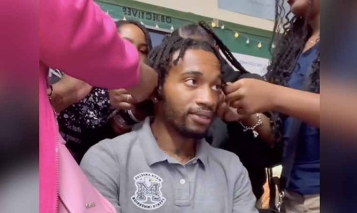
Starting this year, students in Michigan and Florida are required to take a financial literacy course before graduating high school.
Many students don’t know the basics to open a bank account which can lead to a secured credit card that helps build credit.

Students who learn financial literacy will be better prepared at budgeting, saving money, and building good credit.
California-based nonprofit Next Gen Personal Finance donated $1.4 million to the California Department of Education to fund financial literacy courses in high school.

Teachers will receive additional pay for participating in the program, according to a Department of Education news release.
“Providing financial literacy gives students a way of learning in very hands-on and practical ways,” said State Superintendent of Public Instruction Tony Thurmond.
“Financial literacy is especially critical at a time of rising inflation, where many families are facing tough economic choices. These classes will increase our students’ awareness and allow them to live a life without debt and to make better financial choices,” said Thurmond. “There are academic benefits to our students as well, and these courses can align with our A–G requirements. We know that Californians live with a very high cost of living, there’s a lot of poverty and a lot of challenges, and we believe that these are tools that will help to improve the lives of our young people—maybe even engage them in ways that will make them more excited about what they’re learning in mathematics, science, and other subjects.”
Other states plan to adopt similar legislation.





